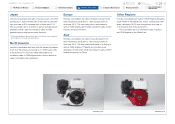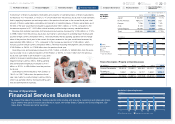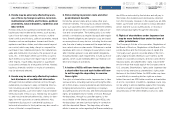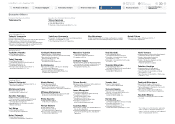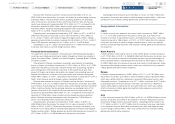Honda 2014 Annual Report Download - page 24
Download and view the complete annual report
Please find page 24 of the 2014 Honda annual report below. You can navigate through the pages in the report by either clicking on the pages listed below, or by using the keyword search tool below to find specific information within the annual report.
Corporate Governance: Risk Factors
Currency and Interest Rate Risks
1. Honda’s operations are subject to currency
fluctuations
Honda has manufacturing operations throughout the
world, including Japan, and exports products and com-
ponents to various countries.
Honda purchases materials and components and
sells its products and components in foreign currencies.
Therefore, currency fluctuations may affect Honda’s
pricing of products sold and materials purchased.
Accordingly, currency fluctuations have an effect on
Honda’s results of operations and financial condition, as
well as Honda’s competitiveness, which will over time
affect its results.
Since Honda exports many products and compo-
nents, particularly from Japan, and generates a
1. Honda may be adversely affected by market
conditions
Honda conducts its operations in Japan and throughout
the world, including North America, Europe and Asia. A
sustained loss of consumer confidence in these mar-
kets, which may be caused by continued economic
slowdown, recession, changes in consumer prefer-
ences, rising fuel prices, financial crisis or other factors
could trigger a decline in demand for automobiles,
motorcycles and power products that may adversely
affect Honda’s results of operations.
Risks Relating to Honda’s Industry
Risks Relating to Honda’s Business Generally
2. Prices for products can be volatile
Prices for automobiles, motorcycles and power prod-
ucts in certain markets may experience sharp changes
over short periods of time. This volatility is caused by
various factors, including fierce competition, which is
increasing, short-term fluctuations in demand caused
by instability in underlying economic conditions,
changes in tariffs, import regulations and other taxes,
shortages of certain materials and parts, steep rise in
material prices and sales incentives. There can be no
assurance that such price volatility will not continue for
an extended period of time or that price volatility will not
occur in markets that to date have not experienced
such volatility.
Overcapacity within the industry has increased and
will likely continue to increase if the economic downturn
continues in Honda’s major markets, leading, poten-
tially, to further increased price volatility. Price volatility
in any of Honda’s markets could adversely affect
Honda’s results of operations.
substantial portion of its revenues in currencies other
than the Japanese yen, Honda’s results of operations
would be adversely affected by an appreciation of the
Japanese yen against other currencies, in particular the
U.S. dollar.
2. Honda’s hedging of currency and interest
rate risk exposes Honda to other risks
Although it is impossible to hedge against all currency
or interest rate risks, Honda uses derivative financial
instruments in order to reduce the substantial effects of
currency fluctuations and interest rate exposure on our
cash flows and financial condition. These instruments
include foreign currency forward contracts, currency
swap agreements and currency option contracts, as
well as interest rate swap agreements. Honda has
entered into, and expects to continue to enter into,
such hedging arrangements. As with all hedging instru-
ments, there are risks associated with the use of such
instruments. While limiting to some degree our risk fluc-
tuations in currency exchange and interest rates by
utilizing such hedging instruments, Honda potentially
forgoes benefits that might result from other fluctuations
in currency exchange and interest rates. Honda is also
exposed to the risk that its counterparties to hedging
contracts will default on their obligations. Honda man-
ages exposure to counterparty credit risk by limiting the
counterparties to major international banks and financial
institutions meeting established credit guidelines. How-
ever, any default by such counterparties might have an
adverse effect on Honda.
Honda Motor Co., Ltd. Annual Report 2014 23
5 Corporate Governance
1 The Power of Dreams
2 Financial Highlights
3 To Our Shareholders
4 Review of Operations
6 Financial Section
7
Investor Relations
Information
Return to last
page opened
Go to
contents page










